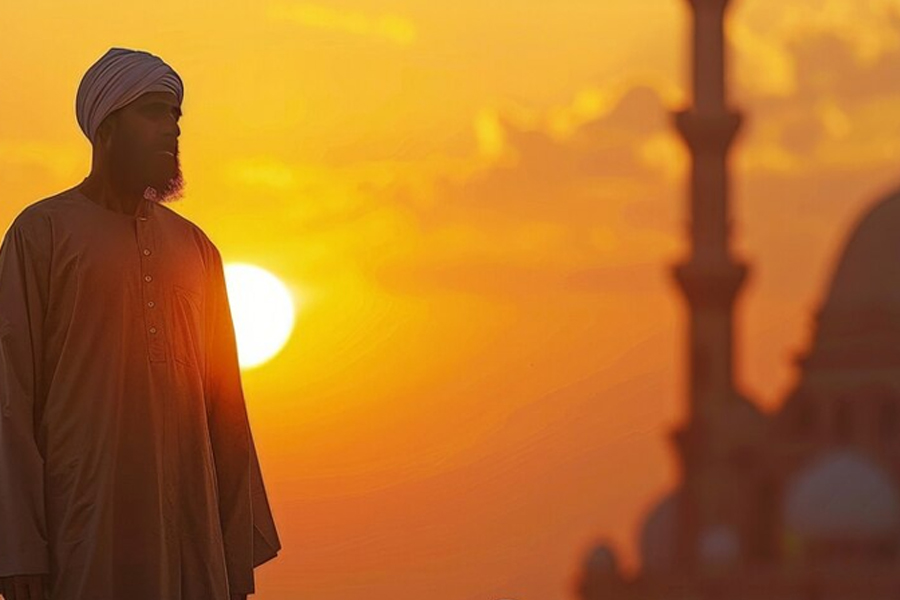Lean into these days by treating takbir as the soundtrack of Dhul Hijjah. Keep the mutlaq on your tongue through commutes, chores, and quiet moments, then let the muqayyad rise with the ummah after each fard prayer. Rotate the authentic wordings so it stays fresh, involve your family so the home hums with remembrance, and keep the heart awake to what the words mean. This is not background noise; it is how we honor Ibrahim’s legacy, steady our intentions, and make every hour of these days count.
Question
What is the difference between restricted (muqayyad) and unrestricted (mutlaq) takbir in Dhul-Hijjah?
Bottom Line
Do both. Unrestricted anytime in Dhul-Hijjah, restricted after each fard prayer from Fajr on 9 Dhul-Hijjah until the end of 13 Dhul-Hijjah.
Quick Answer
Unrestricted takbir is a general remembrance said at any time throughout the blessed days. Restricted takbir is tied to the obligatory prayers only, beginning at Fajr on the Day of ʿArafah and continuing through the Days of Tashrīq. Multiple authentic wordings from the Companions exist; there is no single fixed text, so the matter is broad.
Key Takeaways
- Unrestricted (mutlaq): any time from the start of Dhul-Hijjah until sunset on the 13th.
- Restricted (muqayyad): after each obligatory prayer from Fajr on 9 Dhul-Hijjah through the 13th.
- Several sound formulas are reported from the Companions; all are permissible.
Detailed Answer
Two types of takbir in these days
The first ten days and the Days of Tashrīq are seasons of remembrance. The scholars delineated two complementary practices: unrestricted and restricted takbir.
Unrestricted takbir (mutlaq)
This may be recited at any time in the masjid, markets, at home, or while walking from the beginning of Dhul-Hijjah until sunset on the 13th. Reports mention Ibn ʿUmar and Abū Hurayrah saying takbir aloud in the marketplace to revive the sunnah.
Restricted takbir (muqayyad)
This is specifically after the five obligatory prayers. Its time begins at Fajr on the 9th of Dhul-Hijjah (the Day of ʿArafah) and continues through the Days of Tashrīq until the end of the 13th. Some jurists detail “until after ʿAsr” on the 13th; others extend to Maghrib. Practically, keep it after each fard through the 13th.
Wordings of takbir
No single prophetic wording is fixed; several authentic formulations from the Companions are accepted. Examples include:
- Allāhu akbar, Allāhu akbar, lā ilāha illā Allāh, Allāhu akbar, Allāhu akbar, wa lillāhi’l-ḥamd.
- Allāhu akbar, Allāhu akbar, Allāhu akbar, lā ilāha illā Allāh, Allāhu akbar, Allāhu akbar, Allāhu akbar, wa lillāhi’l-ḥamd.
- Allāhu akbar, Allāhu akbar, Allāhu akbar kabīrā, wa al-ḥamdu lillāhi kathīrā… (and similar variants transmitted from early Muslims).
Since the Prophet ﷺ did not bind the ummah to one text here, reciting any established wording achieves the purpose of magnifying Allah in these days.
What This Means for You
From day 1 of Dhul-Hijjah, fill your days with takbir anytime. Starting Fajr on 9 Dhul-Hijjah, add takbir after every fard prayer through the 13th. Use any authentic wording and keep the heart present.
And Allah knows best.
References
Primary Sources
Hadith
- Sahih al-Bukhari 969 (muʿallaq in Kitāb al-ʿĪdayn): Report of Ibn ʿUmar and Abū Hurayrah making takbir in the market during the ten days.
- Sahih Muslim 1141: Days of Tashrīq are days of eating, drinking, and remembrance of Allah.
Secondary Sources
- Ibn Qudāmah, al-Mughnī: Start and end times for restricted takbir and accepted formulas.
- Ibn Taymiyyah, Majmūʿ al-Fatāwā: Distinction between mutlaq and muqayyad takbir in Dhul-Hijjah.
- Al-Lajnah al-Dāʾimah, Fatāwā: Guidance on timing after prayers from Fajr on 9th through 13th.
- Ibn Abī Shaybah, al-Muṣannaf: Athar on Takbir wordings from the Companions.
Was this helpful?
Thanks for your feedback!
Leave Your Comments
© Copyright 2025, All Rights Reserved

